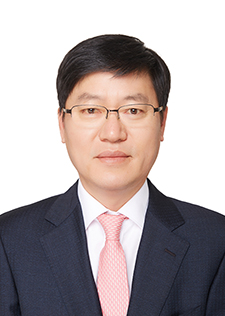September 1, 2025 | Monday | Opinion | By Ayesha Siddiqui

KoNECT was established to strengthen Korea’s global competitiveness in clinical research. What are the key milestones achieved since its foundation, and how has your role evolved with recent government designations (e.g., as National Center for Clinical Research Service)?
Since its establishment in 2014, KoNECT has been dedicated to enhancing Korea’s global competitiveness in clinical research by improving trial capabilities and advancing clinical infrastructure. In 2020, KoNECT was officially designated by the government as the National Center for Clinical Research Service, responsible for supporting the overall clinical trial industry—including infrastructure development, ongoing curriculum design and implementation as an educational institute, and attracting both domestic and international investment.
Following this designation, KoNECT’s role has significantly expanded. We now support policy formulation, act as a bridge connecting government, academia, and industry stakeholders, and lead initiatives to cultivate specialised professionals and advance clinical trial digitalization.
Our flagship annual event, the KoNECT International Conference (KIC), serves as a platform to showcase Korea’s global leadership in the field of clinical trials. We have also implemented practical initiatives, including the free distribution of Clinical Trial Management Systems (CTMS), the launch of the ‘Korean Clinical Trials Participation Portal’ to enhance participant access, and the establishment of a hands-on training center for clinical professionals. Importantly, KoNECT has responded proactively to public health emergencies such as COVID-19. We established the Infectious Disease Clinical Trial Center to support the rapid launch of infectious disease trials, along with a dedicated Investigator-Initiated Trial Support Unit to strengthen research capacity and support non-commercial clinical studies.
These efforts have led to significant outcomes—Korea ranked 4th globally in the number of clinical trials in 2023 and has maintained the world’s top city-level trial density for seven consecutive years since 2017. Most recently, KoNECT has been spearheading the development of a centralised clinical trial platform (from 2025 onwards), aimed at improving access to regulatory intelligence, investigator networks, and national resources—laying the foundation for a fully integrated, nationwide clinical research ecosystem.
Could you elaborate on KoNECT’s role in attracting foreign investment into Korean clinical trials? What collaborations or partnerships with global pharma or CROs have had the most impact?
To support the attraction of global clinical trials to Korea, KoNECT actively promotes the country’s drug development capabilities and clinical trial infrastructure to global developers—particularly those not yet operating in Korea or seeking to expand into Asia. This includes introducing KoNECT’s range of support services and providing expert consultations on regulatory pathways. As part of this initiative, KoNECT organises and supports Korean clinical trial delegations comprising pharmaceutical companies, CROs, and other organisations involved in clinical trials to major international congresses such as the American Society of Clinical Oncology (ASCO) and the European Society for Medical Oncology (ESMO) Congress, enabling direct engagement with key global stakeholders. In 2024, KoNECT successfully attracted 14 multi-regional clinical trials from six companies.
In parallel, KoNECT spearheads high-level global investment strategy forums aimed at helping Korean biotech companies attract global investment. These forums serve as a strategic platform for in-depth dialogue on evolving global financing trends, capital access challenges, and cross-border collaboration models. By bringing together leading investors, multinational biopharma executives, and Korean biotech innovators, the events foster meaningful connections and pave the way for sustained global partnerships. More concretely, KoNECT provides Korean biotechs with opportunities to present their technologies through investor relations (IR) pitches, and facilitates one-on-one meetings for global investment and clinical development consulting. These efforts have led to tangible outcomes, including 1 signed Confidential Disclosure Agreement (CDA) and 6 follow-up discussions with four global companies.
Are there any ongoing initiatives or dialogues involving KoNECT aimed at cross-border clinical trial networks or regional regulatory convergence in Asia?
Yes, KoNECT is actively engaged in cross-border collaboration and regulatory convergence efforts across Asia. We have been officially designated as a Center of Excellence (CoE) by the APEC Regulatory Harmonization Steering Committee (RHSC) and provide annual training programmes on regulatory harmonisation for regulators, industry stakeholders, and academic institutions throughout the Asia-Pacific region.
In 2023, KoNECT and Japan jointly launched the Asian Clinical Research Infrastructure Network (A-CRIN), an initiative aimed at strengthening regional cooperation through regulatory alignment, data sharing, and support for multinational clinical trial collaboration across Asia.
You’ve been designated as an institution for training and certification of clinical trial experts. What gaps still exist in Korea’s clinical research workforce, and how is KoNECT addressing them?
Despite Korea’s strong presence in clinical research, several structural challenges remain—a shortage of globally trained, skilled professionals with practical, hands-on experience; limited expertise in digital trial methodologies; and regional disparities in the clinical research workforce.
To address these challenges, KoNECT is developing and implementing globally aligned training programmes, including ICH-GCP, while expanding practical education in areas such as AI applications, real-world data (RWD), CDISC standards, and decentralised clinical trials (DCTs). We also operate a national certification system for clinical trial professionals, provide hands-on training through dedicated institutions, and strengthen regional training efforts to build clinical research capacity nationwide.
We’re seeing a clear shift of global sponsors toward running more trials across Asia. How do you see Korea’s role evolving within this regional clinical research ecosystem over the next 5 years?
With global pharmaceutical companies increasingly expanding their trials across Asia, and the rise of innovative trial designs such as DCTs, Korea is well-positioned to lead this regional evolution. Leveraging our key strengths—rapid trial initiation, strong patient engagement, and robust safety and ethics oversight—Korea is reinforcing its capabilities under the current government’s strategic agenda, which focuses on enhancing global collaboration, fostering convergence with advanced technologies, and training medical and scientific professionals.
In the next five years, we aim to boost Korea’s involvement in clinical trials across all phases and a wide range of therapeutic areas, with the goal of positioning the country among the global top three in clinical trial competitiveness and establishing it as a central research hub in Asia.
Ayesha Siddiqui